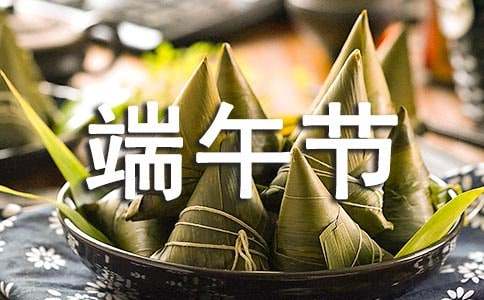小學(xué)三年級(jí)關(guān)于端午節(jié)英語(yǔ)作文
端午節(jié)與春節(jié)、清明節(jié)、中秋節(jié)并稱為中國(guó)民間的四大傳統(tǒng)節(jié)日。小編整理的端午節(jié)英語(yǔ)作文,供參考!

關(guān)于端午節(jié)英語(yǔ)作文1
do you know who is "qu yuan"? what type of "zongzi" do you like most? have you ever joined a dragon boat competition? all these are related to the dragon boat festival.
你知道誰(shuí)是“屈原”?什么類型的“粽子”你最喜歡?你有沒有參加龍舟比賽嗎?這些都是端午節(jié)相關(guān)。
do you know the origin of this festival? read the following essay and you will have a clear picture of the dragon boat festival.
你知道這個(gè)節(jié)日的由來(lái)嗎?閱讀下面的文章,你將有一個(gè)清晰的畫面,端午節(jié)。
the 5th day of the 5th month of the lunar year is an important day for the chinese people. the day is called duan wu festival, or dragon boat festival, celebrated everywhere in china.
每年的農(nóng)歷第五個(gè)月的`第五天對(duì)中國(guó)人來(lái)說是個(gè)重要的日子。一天被稱為端午節(jié),或是端午節(jié),在中國(guó)各地慶祝。
this festival dates back to about 2,000 years ago with a number of legends explaining its origin. the best-known story centers on a great patriotic poet named qu yuan.
這個(gè)節(jié)日可以追溯到大約2000年前與一些解釋它的起源的傳說。一個(gè)偉大的愛國(guó)詩(shī)人屈原的著名故事中心。
the customs vary a lot in different areas of the country, but most of the families would hang the picture of zhong kui (a ghost that can exorcise), calamus and moxa in their houses. people have dragon boat races, eat zong zi (dumpling made of glutinous rice wrapped in bamboo or reed leaves) and carry a spice bag around with them.
海關(guān)在該國(guó)不同地區(qū)差別很大,但大多數(shù)家庭會(huì)掛鐘馗畫(可以驅(qū)邪鬼),菖蒲、艾條在他們的房子。人們賽龍舟,吃粽子(用糯米飯餃子包在竹葉或蘆葦葉)和攜帶一個(gè)香料袋與他們周圍的。
關(guān)于端午節(jié)英語(yǔ)作文2
The Dragon Boat Festival, also called Double Fifth Festival, is celebrated on the fifth day of the fifth moon of the lunar calendar. It is one of the most important Chinese festivals,the other two being the Autumn Moon Festival and Chinese New Year.
The origin of this summer festival centers around a scholarly government official named Chu Yuan. He was a good and respected man,but because of the misdeeds of jealous rivals he eventually fell into disfavor in the emperor's court.
Unable to regain the respect of the emperor,in his sorrow Chu Yuan threw himself into the Mi Low river. Because of their admiration for Chu Yuan, the local people living adjacent to the Mi Lo River rushed into their boats to search for him while throwing rice into the waters to appease the river dragons.
Although they were unable to find Chu Yuan,their efforts are still commemorated today during the Dragon Boat Festival.
中文翻譯
端午節(jié),又稱為五五節(jié),因?yàn)槎宋绻?jié)是在農(nóng)歷的五月五日,是三個(gè)重要的中國(guó)節(jié)慶之一,其他兩個(gè)分別是中秋節(jié)和農(nóng)歷新年。
這個(gè)節(jié)日的由來(lái)是古代中國(guó)有一位博學(xué)多聞的官吏屈原,他是一位愛民而且又受到尊崇的官吏,但是由於一位充滿嫉妒的官吏陷害,從此在朝廷中被皇帝所冷落。由於無(wú)法獲得皇帝的重視,屈原在憂郁的情況下投汨羅江自盡。
由於對(duì)屈原的愛戴,汨羅江畔的居民匆忙的劃船在江內(nèi)尋找屈原,并且將米丟入汨羅江中,以平息汨羅江中的蛟龍。即使他們當(dāng)時(shí)并沒有找到屈原,但是他們的行為,直到今天在端午節(jié)的時(shí)候,仍然被人們傳頌紀(jì)念著。
【小學(xué)三年級(jí)端午節(jié)英語(yǔ)作文】相關(guān)文章:
小學(xué)英語(yǔ)作文:端午節(jié)英語(yǔ)作文09-22
端午節(jié)的小學(xué)三年級(jí)英語(yǔ)作文09-19
有關(guān)端午節(jié)的小學(xué)英語(yǔ)作文09-19
快樂的端午節(jié)小學(xué)英語(yǔ)作文09-22